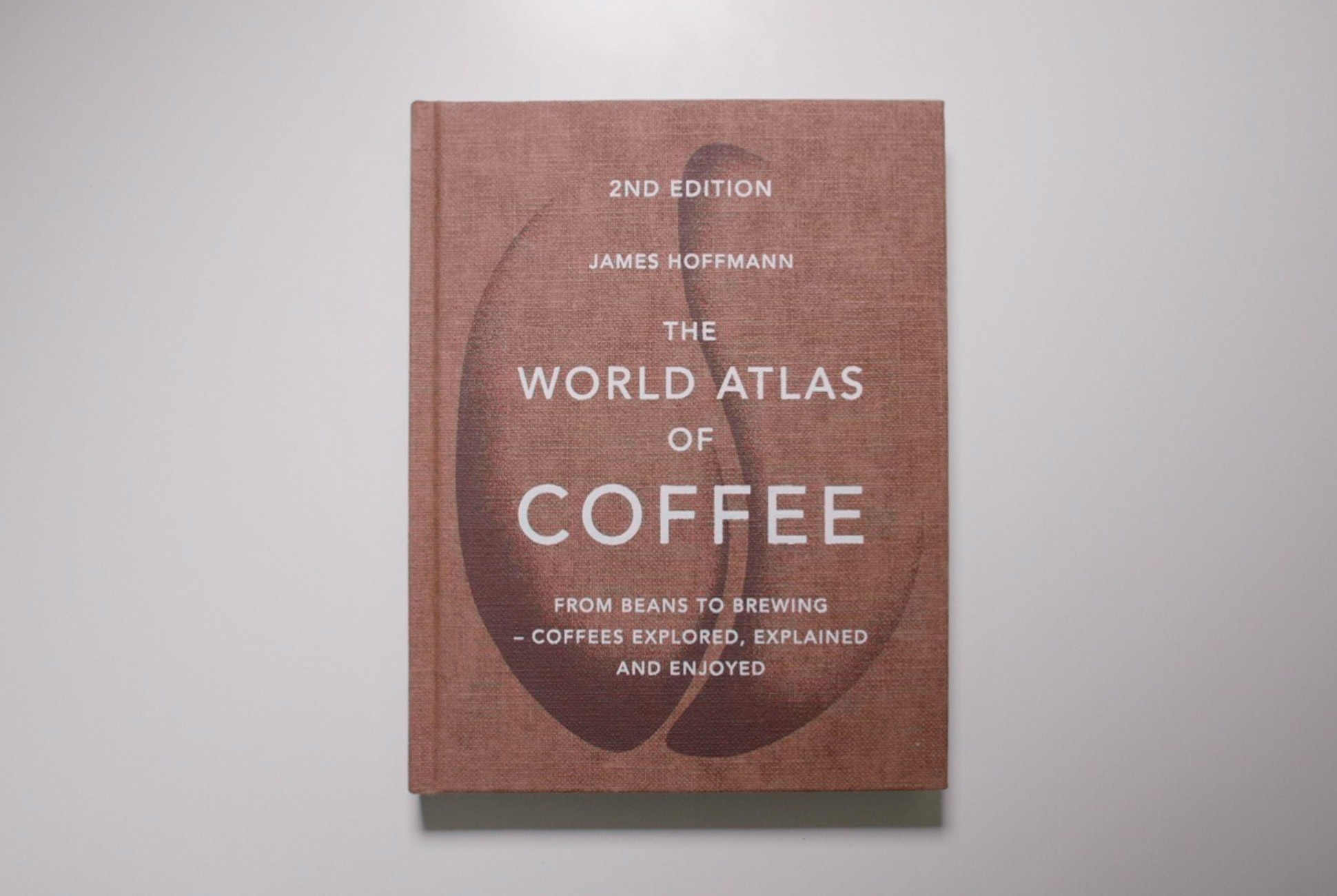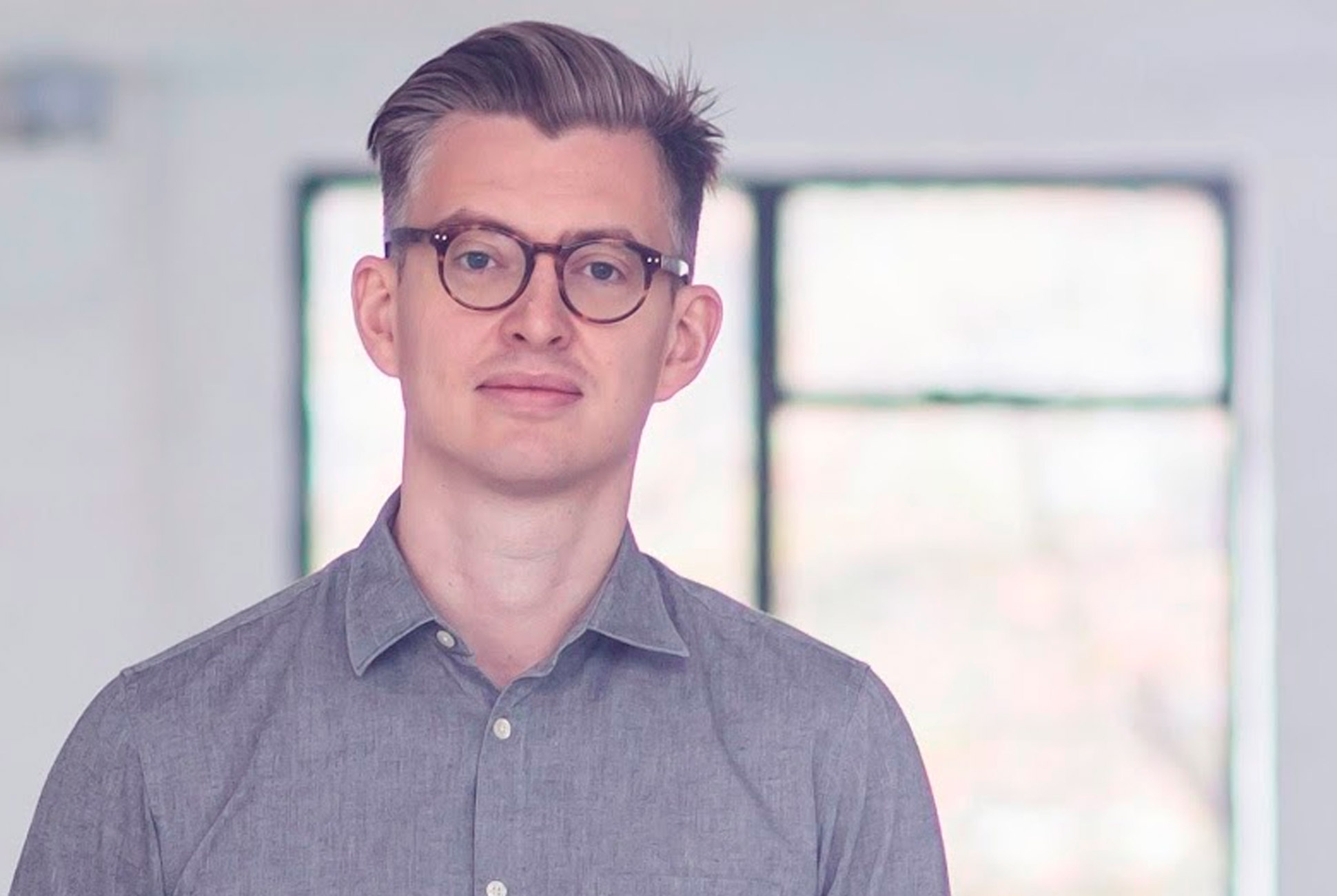The Rundown
• Coffee is very frustrating to farm, roast and brew.
• You don’t need tons of gear to enjoy great coffee.
• China is the Wild West of coffee.
• The second edition of James Hoffman’s The World Atlas of Coffee is available now.
It’s been more than a decade since James Hoffman was crowned World Barista Champion in 2007. A lot has changed.
Specialty coffee, a semi-appropriate analog to craft beer, has boomed (and continues to boom) in more places and with new people. Roasters all over the U.S. have cropped up and begun churning out great coffee in places other than country’s smallest corners. And, most importantly, specialty coffee consumption is at an all-time high.
Hoffman, for his part, hasn’t rested on his laurels. He cofounded a specialty roaster in London; consulted and advised a stable of other roasters, baristas and cafés; maintained and built upon an incredibly useful Youtube channel, where he reviews the latest gear the coffee world has to offer; and released one of the most comprehensive guides to world of coffee you can buy, The World Atlas of Coffee. When I asked James Hoffman what it is he does for a living he groaned, “I guess I’m a sort of coffee-related entrepreneur? I don’t even know — that sounds awful.”
It’s been four years since the book released, and given the quick rise of coffee and a new, wet-eared collective of the coffee-curious, a second edition just came out (available at Amazon and Barnes & Noble) last week. We used the book as an opportunity to talk about all things coffee, including the coffee world’s gear nerdery.

The World Atlas of Coffee, first published in 2014, is one of the most comprehensive guides to coffee you can buy. A second edition is out this month. Photo courtesy of James Hoffman.
Q: Who did you write The World Atlas of Coffee for?
A: Selfishly, I had been trying to buy this book for ten years and no one would or had written it, I think. At the same time, it was written to try and bridge the gap between an enormous, booming, changing coffee industry and the people that industry wants to serve.
It used to be simple, you know, you just get a good or bad cup of coffee and that’d be the end of it, now it’s quite a complicated thing. There are all these farm names and origins and terms and such, but for most people, they just don’t speak that language. So the book is for them, really, to help them navigate and understand this world a bit more. Just making it accessible, specialty coffee is obviously something a lot of people are turned off by the snootiness and arrogance of it all.
Q: Do you think coffee is still a snooty industry?
A: That’s kind of a pet hate of mine, the way coffee people can make borderline coffee-people and newcomers feel. It’s not always a spoken or hidden snootiness, coffee is just really big and a little frustrating.
Q: Why do you think coffee is frustrating for some people?
A: [Coffee is] sort of made three times, right? It’s farmed, it’s roasted and then it’s brewed. This is why it’s so easy to make coffee bad, because a break or fault in any of the links and things will fall apart. You can go to the best cafés in the world and they’ll still serve you the occasional disappointing cup of coffee. A lot of roasters, for example, fear that they’ve got this great product, they’ve roasted it really well and it’s fresh, but a person might bring their first or second bag home and perhaps it didn’t turn out so well.
I’m not saying you can’t brew great coffee at home, because that’s just a ridiculous thing to say. And knowing a thing or two about brewing at home is really important, but this is what a lot of these roasters are thinking about. Are we requiring too much of the home coffee drinker? You must have a grinder at home. You must have a kettle. You must have a scale. Are we really saying to enjoy our product you need all this?
Q: Do you need a ton of gear to enjoy great coffee?
A: Not exactly, no. That’s why all these specialty guys are coming out with ready-to-drink, instant, steeped coffee and whatever else. They’re trying to make it easier to enjoy something interesting.
There’s gear that’s going to make your life easier and there’s gear that’s going to give you more control and possibilities. I’m more interested in the former for now. In the last couple of years, we’ve got truly excellent home coffee makers. For not a lot of money, you can buy an automatic brewer that requires you pushing “go.” At 6 o’clock in the morning that’s really all most people, myself included, want.

James Hoffman, author of The World Atlas of Coffee, was named World Barista Champion in 2007. Photo courtesy of James Hoffman.
Q: So simpler coffee-making gear is the way forward?
A: Well, let’s look at scales. They’re the way to go, and it’s very frustrating that they so often appear to be ‘oh, look at me trying to be a coffee scientist,’ thing. My ability to make guesses and rough estimates on sight before a cup of coffee in the morning is poor. So if I need 30 grams of coffee, the smartest thing is to let a machine figure that out for me, instead of me figuring it out with scoops and beakers and whatnot. Following a basic recipe with as few machines and buttons and things as possible is how I ensure my first cup of the day isn’t a bad one.
Q: Stepping back, what’s the most interesting place or thing in coffee right now?
A: China is unquestionably the most interesting place in coffee right now. It’s kind of the Wild West of coffee. There have been several booms in coffee, of course, but they all happened within the cultural confines where coffee already existed.
Q: How do “cultural confines” affect coffee?
A: China had no coffee culture before, the per capita consumption was hardly anything. And really it still hasn’t moved that much, but if it does start consuming coffee in any meaningful way, and doesn’t start producing in a meaningful way, that is catastrophic to coffee; we literally do not make enough coffee right now to support that.
It’s just this place where they don’t have preconceived notions of good and bad or whatever. In Italy, for decades you could get a cup of espresso for a single euro. The government even mandated it be so for a while, so specialty coffee hasn’t gained much ground there, because coffee there is expected to be cheap and accessible. America decided it was fancy, so it’s expensive and it’s almost a status thing. China hasn’t decided yet, and there’s a huge amount of potential in the country.

